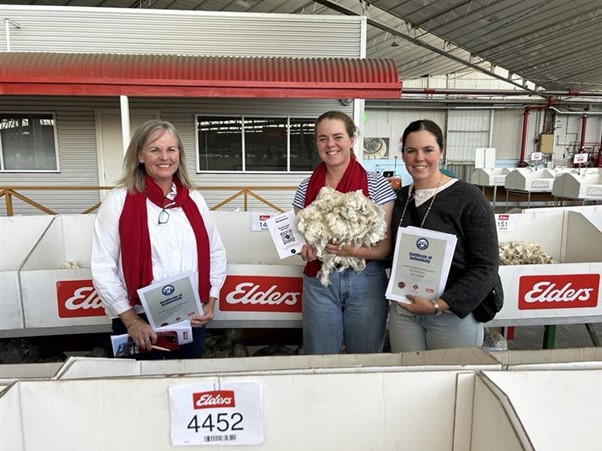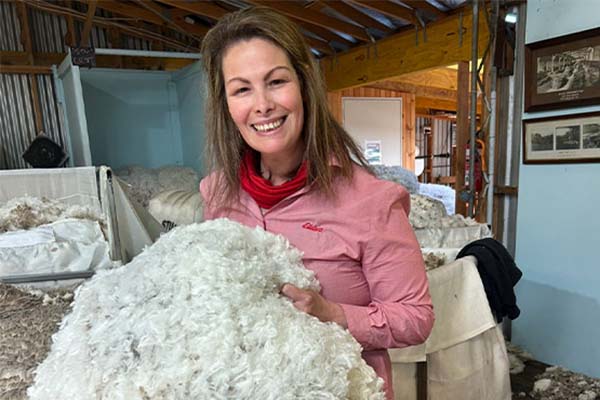Madeleine Scott, alongside her husband Andrew, and their daughters Charlotte and Matilda, run two Merino wool farms in Tasmania.
 Left to Right: Madeleine Scott, Matilda Scott and Charlotte Scott
Left to Right: Madeleine Scott, Matilda Scott and Charlotte Scott
At ‘Myrtlewood’ in Tasmania’s Northern Midlands region, the Scott family predominantly produces high-quality superfine Merino wool. The family has further diversified their portfolio in the last year by acquiring a second property, ‘Snow Hill’, where they concentrate on growing ultrafine Merino wool.
Sustainability stands at the forefront of the family’s operations. With the help of Elders district wool manager Mel Morris, the Scott family has become certified under the Responsible Wool Standard (RWS). This involves navigating a thorough certification process aimed at enhancing their farming practices focused on sustainability.
“We are committed to producing exceptional wool in a responsible manner,” said Madeleine.
“Becoming RWS certified was quite a process that involved a lot of documentation. We looked at many different aspects of our business to showcase the sustainable and ethical production of wool that we undertake at Snow Hill and Myrtlewood.
“Mel has been instrumental in helping us get the RWS process underway, and it has been very rewarding."
"It has really made us think about how we do things on the farm, and how we can produce the best possible product in the best possible way.”
The family has implemented various sustainability initiatives across their two properties. This includes the fencing of a critical creek area to preserve its ecosystem and the planting of trees to create shelter for sheep and support local biodiversity. They place a genuine focus on grazing management, ensuring their land has plenty of time to regenerate and recover.
Madeleine said the family has also just begun collaborating with the University of Tasmania on a five-year wildlife study, looking at the population of eastern quolls, a small marsupial only found in Tasmania.
“We have set up cameras all around the farm, so we will have data as to the wildlife we actually have in the bush area of our property,” she said.
“The study is also looking at the presence of feral species in the area; feral cats and deer in particular are a big issue, so this will help us manage that.”
In recent times, the Scotts have also implemented the 'AG We' platform, which provides an innovative approach to transparency within the supply chain. This initiative allows for direct communication between producers and consumers, enhancing the provenance of products.
“It’s essentially a platform that allows farmers to share their story and their property’s story,” Madeleine said.
“We have some cards made up, containing QR codes. With each sale of our wool, buyers can scan that code and better understand the people and story behind the product.”
Community involvement is integral to the Scott family, and the women of the family have enjoyed becoming involved in the Pink Belles group, which was formed by their district wool manager Mel.
“It is an amazing group to be part of. Building a network of women in the wool industry has been a vital aspect of our growth,” Madeleine said.
“We can talk about the good, the bad and the ugly, and feel supported by a likeminded, local group who all have a passion for wool.”
The Pink Belles group recently visited the new Elders Wool facility in Melbourne, a world-first for the industry in which autonomous guided vehicles shift bales around the centre.
“It was mind-blowing,” Madeleine said.
“We were all absolutely astounded and really excited by the investment in the technology. It was very reassuring to see Elders’ clear position on the industry.”
Looking ahead, the Scott family aims to expand their sustainability initiatives and explore further opportunities within the wool sector. The family’s dedication to ethical practices and operational efficiency places them at the forefront of innovation and sustainability in agriculture.

